Ten cents and a Sociology degree, so the expression went, could buy you a cup of coffee. It was 1974 and, though the price of coffee has gone up a lot since then, the market value of a Sociology degree remains the same. Zilch. Which is how I ended up working for the phone company. The rent, the grocery bill and the utilities had to get paid somehow, not to mention the repayments for student loan which I’d tried to abscond on. (I was foiled by my mother who opened my bills and paid them. It was not only illegal, it was an outrage that she had opened mail addressed to me and then made it impossible for me to default! Let’s face it, you can’t abscond on a debt to your Mom.)
It wasn’t exactly the job of my dreams. And, to add insult to injury, despite the fact that I was living in Venice (California) at the time, the Pacific Telephone company’s Greater Los Angeles personnel office saw fit to employ me as a Long Distance Telephone Operator a thirty-five mile drive away in Downey! Downey! Not two miles from Bellflower, the hometown I had been trying to escape for the past three years! Life is full of little ironies, eh?
I had my two weeks of training, for which I was presented with a Diploma (no mortarboard this time) and sent to work on the boards with quite a number of girls I’d gone to school with, who were no doubt secretly giggling about how, after getting a degree at UCLA, I was now earning less than them because they had more seniority.
It was in the days of the old plug switchboards. We sat battery-hen-like along the board, answering calls from all the exchanges in the area by plugging into holes with illuminated lights above them. It was pretty random. There was no way to tell how long a call had been standing there waiting for an operator to plug into it, so we had a lot of irate customers.
Aside from the odd shouter, there were, I discovered, three distinct kinds of troublesome customers.
There were the ones who just couldn’t cope – like when they wanted to call long distance directory assistance to get a phone number. The directory assistance number was 1 plus the area code, plus 555-1212. If the area code was in, say, Iowa, there could be a problem.
“Just dial 1-515-555-1212,” I explained to a customer one day.
“OK,” she drawled uncertainly, “that’s 15555….”
“No,” I corrected patiently, “It’s 1-515-555-1212.”
She hesitated, then spoke slowly “1-512…”
“No, listen,” I interjected, “First you dial the one. Then the area code which is 515. And then the number 555-1212.”
“So there’s four 5s.”
“No three 5s.”
“But you said 51 and then 5555!”
“OK, you’re right,” I sighed, ”If you want to count the last 5 of the area code it’s four 5s.”
“So,” she started, more confident now that she’d caught me out, “it’s 1-5555…”
I tried again. Speaking very, very slowly. Less patient. “No. 1-5-1-5-5-5-5-1-2-1-2!”
“OK I got it!” she exclaimed “1-515-555-1212!”
“Good!” I said.
“Now you just wait there while I go get a pencil and you can tell me again!”
The next troublesome group were the con artists and petty criminals. It was the custom at the time to apologise if someone phoned up to say they’d lost money, and to arrange a refund of their lost dimes, nickels and quarters. It was clear there were often no lost dimes, nickels and quarters, but, hey it wasn’t my money. Then there were the fraudulent telephone credit card calls. All you needed to make a call was to break the phone company’s credit card code, which a lot of people had managed to do. One number on the card had to match a letter on the end of the card. Not exactly the Enigma code. How do I know this? Er…I don’t recall.
But sometimes it got to us that they thought we were buying it, that they thought we were stupid. Like the guy who was asked to deposit fifteen cents for his call. This was in the days of the phones that went ding when you put money in, which was so the operator could know how much the customer was putting in. But when this guy was asked to deposit the money he just said, “Ding! Ding-ding!” Which, let’s face it, is a bit insulting.
“Er…could you put the money in, sir?” asked the operator.
“I did!” he insisted! “Didn’t you hear it go, ding ding-ding?” So the operator pressed the return button and asked him to put it in again. And again the guy just said, “Ding! Ding-ding!”
By this time the operator was getting impatient. “Okay, sir. I’m returning your deposit and this time I really do want you to put the money in!”
“Okay,” he said, “Here it comes! Are you ready?” And then (again!) the inevitable, “Ding! Ding-ding!” She snapped.
“Alright, sir, buzz-buzz-buzz! It’s busy!” And disconnected.
The last troublesome callers were the sad ones. Every Sunday the local mental hospital in Norwalk would allow patients to use the public telephone to make calls. They had no money, of course, and would make collect calls to relatives who would refuse the charges. We got these calls all day and charges were almost never accepted.
Some of these customers, though, were more colourful than others.
“Operator! I want to make a collect call to the Sheriff of the Los Angeles Police Department!” A brisk, crisp voice.
“May I have the number please?”
“I don’t have the number, operator!”
“I’ll give you the number for directory assistance then. It’s 1-213-555…”
“There’s no time, dammit! I’m an ex-commando in the Marines and I must get through!”
So, as per my training (we always had to be polite and connect if the customer insisted), I called directory assistance and asked the operator if she had the number of the Los Angeles Police Department.
“Which division?” she asked.
“The Los Angeles Police Department!” he insisted impatiently.
“I’ve got Ramparts Division, Hollywood Division…” she replied.
“I want the Los Angeles Police Department!” he demanded. “I’m an ex-commando in the Marines and I must get through!”
So I took the number of Ramparts Division, called it and asked the desk sergeant if the Sheriff of the Los Angeles Police Department would take a collect call from an ex-commando in the Marines. He declined.
Inevitably, of course, I then hear another operator down the board saying, “I’ve got a collect call for the Sheriff of the Los Angeles Police Department. Will you accept charges?”
The ex-commando was a regular and called every Sunday. Sometimes it was to the Pentagon or the White House, or to the National Guard or the FBI. You could lose your job for being anything but entirely courteous to a customer, and he was nice enough. Nobody ever wanted to take a call from him though, because of what it would do to their hourly average.
Pacific Telephone had ways of making you work. Each call we took was logged onto an IBM card (I believe they are now exhibited in museums around the country if you’d like to see one) and these were collected every hour. Once or twice a day every operator had their cards counted and subjected to an interesting Statistical Exercise.
Adding up the total number of calls taken in the office that hour, the supervisor would then divide it by the number of operators on the board to calculate the average calls taken per operator. She would then compare this average with the number of calls each individual operator had completed. (Are you with me so far?) If an operator made the average, or better than the average, she was congratulated. If she fell below the average she got an earful about her performance. This made the operators who had fallen below the average work harder. Which drove the average go up of course. Which made the operators who had fallen below the average work harder. Which drove up the average. Etcetera.
Once, when I got told off for not making the average, I pointed out that, well, somebody had to not make it.
“There is no reason why every operator in this office should not be making the average!”
Now, as you know, I had had to take statistics as part of my Sociology degree, but you didn’t need a statistical model to know that this was an insane thing to say!
“An average,” I explained patiently, “that unless every operator were to complete exactly the same number of calls, there will always be those who do better than the average and those who do worse!”
Nevertheless, in complete defiance of all mathematical laws, she continued to insist that there was no reason why every operator on the floor should not be making the average. Some people have no respect for statistics.
There was nothing they wouldn’t do to improve the speed of answer and hourly call average. At busy times supervisors would run up and down the board shouting, “Pick ‘em up! Pick ‘em up!” At really busy times, they didn’t even want us to pull the plugs down at the end of a call, just go straight on to the next one. “Pick ‘em up, I’ll pull ‘em down!” they’d shout (as the actress said to the baggy-trousered bishop)!
The obsession with speed even caused them to declare war on bathroom breaks! Bathrooms were only to be used during break times except for the one day a month a woman’s period came on. Which of course excluded men and pregnant women from bathroom breaks.
They decided that anyone with more than four days absence per year could be fired.
“We can look after our machines to make sure they keep working,” we were told, “but we can’t look after our employees. You have to look after yourself in order to be an asset to the company.”
And then there was the Night Bell. Not a lot of people made Long Distance calls in the middle of the night, so the Night Bell was used to alert operators on night shift when a call was waiting. In order to keep us on our toes, they decided to use the Night Bell during the day too, when there was hardly ever a time when there wasn’t a call waiting. We had to listen to that loud ringing in our ears all day, which didn’t seem to stop even when we went. The obvious thing to do would have been to go to the union rep about it. Unfortunately our union rep was also a supervisor. Understandably no one bothered.
A year or two before there had been a national strike. Strikers at Downey Toll had verbally abused strike-breakers, and strike-breakers had retaliated by smashing the windshields of the parked cars of strikers. The strikers then retaliated by putting union stickers on the strike-breakers’ cars. Which were then attacked by…er…strike-breakers. You do have to admire the strikers’ sheer class!
But it did leave a bitter legacy and, despite the ever rising call averages, the bathroom ban, taking care of ourselves for the company and that relentless Night Bell, no one seemed particularly interested when a new agreement was being negotiated between Pacific Bell and the Communication Workers of America in 1975. I soon found out why.
The union had recommended rejection of management’s official offer which the membership duly delivered. After all, there was no pay increase, nothing to address the daily harassment we were facing and the directory assistance operators had been demanding to be covered for optical care because the job ruined their eyesight. After another round of negotiation, the union emerged like Chamberlain in 1938 with “a piece of paper” which they recommended we accept. It was identical to the previous offer. Except that it stipulated a closed shop, which would result in more union dues payers.
The members were understandably miffed and I attended a huge union meeting in Los Angeles where the Big Guns of the union explained the offer and then recommended acceptance. Two thirds of the members there, all sitting together en bloc, erupted into boos. The other third cheered. Naturally I booed. Unfortunately I was sitting with the cheerers. I had to excuse myself before I got beaten up.
A very passionate argument followed during which and a furious directory assistance operator (wearing very thick glasses) was bundled out by what I can only describe as goons. I knew it was all going to come to nothing. And it didn’t. The agreement was accepted. The averages went up. The Night Bell stayed on. I learned to never have a third cup of coffee on my break unless I was wearing Pampers. And, I found myself getting less and less patient with customers.
One Sunday I took a call from Norwalk.
“Operator!” said a brisk, crisp voice, “I need to make a collect person-to-person call to the Norwalk Police Department.”
“May I have the number please?” I asked.
“I don’t have the number. I need to speak to the deputy.”
I sighed. “You don’t happen to be an ex-commando in the Marines, do you?” I asked tetchily as I dialed directory assistance. There was an odd silence.
“No. What do you mean? Operator, what do you mean an ex-commando?” he demanded.
Shit. It wasn’t him. It wasn’t him!
He was furious when I didn’t answer. (What the hell was I going to say?) I knew he would complain to my supervisor and he did. And I would have lost my job if the supervisor hadn’t thought he was a crazy person.
“Okay!” she laughed as she came to collect IBM our cards, “Which one of you operators called a customer Black Panther?”





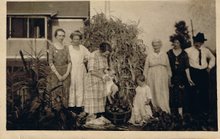
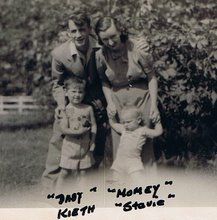


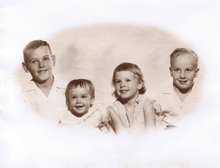
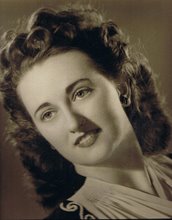
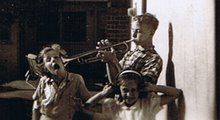
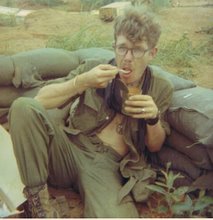


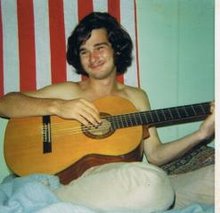
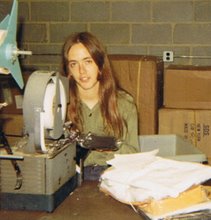


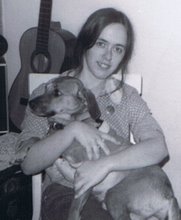
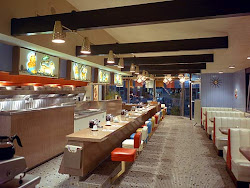

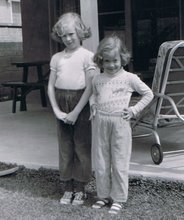

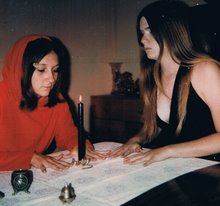
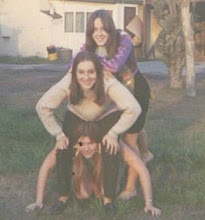
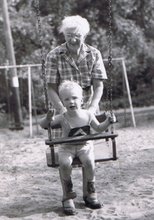
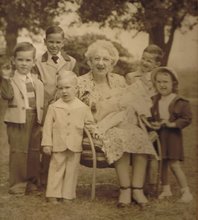
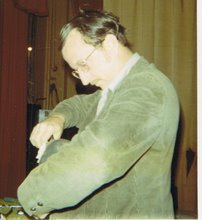
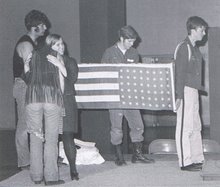
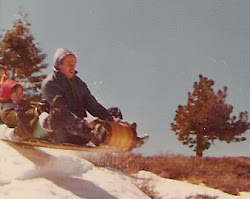





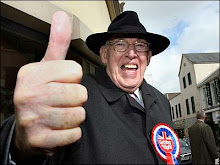


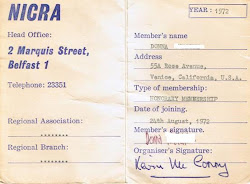
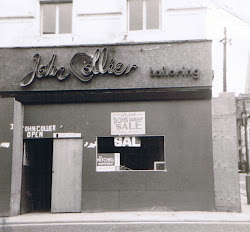
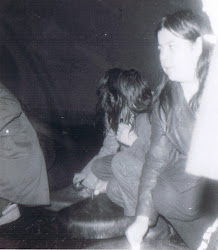

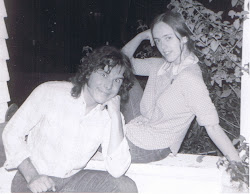
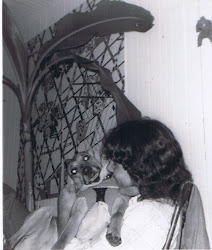
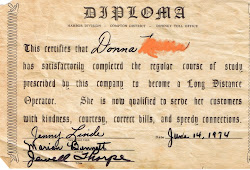




2 comments:
Do you ever write anything that's not interesting? It's like catnip or something. I don't even know what catnip is, but I've heard about it. The opposite of catnap, maybe. (I think I got it from Woody Allen, as Mia might have said to...erm.)
Hello. This post is likeable, and your blog is very interesting, congratulations :-). I will add in my blogroll =). If possible gives a last there on my blog, it is about the Plotter, I hope you enjoy. The address is http://plotter-brasil.blogspot.com. A hug.
Post a Comment